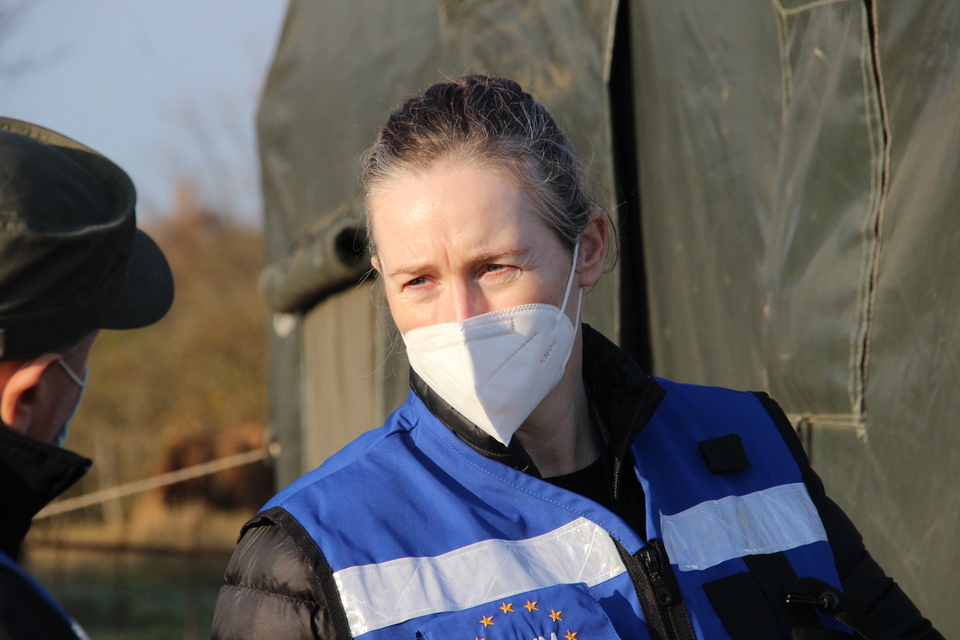CSDP Women’s Mentoring Programme: Interview with Mentor Kate Fearon, Deputy Head of Mission EUMM Georgia
Civilian crisis management greatly benefits from the expertise of capable leaders, both women and men. Security is still a highly male-dominated field. A common goal of the EU Member States is to increase women’s equal participation and leadership in civilian crisis management missions and strive to lead by example. By organising a CSDP (Common Security and Defense Policy) Mentoring Programme for Women, the CoE is supporting these aspirations to include women’s experiences and competencies in civilian crisis management and peace processes.
The CoE spoke to Kate Fearon, Deputy Head of Mission EUMM Georgia, about her experiences as a mentor for the programme.

“The thoughtful and structured programme designed by the CoE took my prior experiences to a whole new level. It elevated the experience for both me and the mentees.“
What motivated you to participate in the WMP?
It was an easy thing to say ‘yes’ to! I wish that a programme like this had been around when I was a younger manager, so I was keen to offer support to other women managers and leaders.
Did you have former experiences in mentoring someone?
Yes, I provided informal mentoring and coaching to other colleagues, both in EUMM and in other posts previously. The thoughtful and structured programme designed by the CoE took my prior experiences to a whole new level. It elevated the experience for both me and the mentees.
What have been your professional and/or personal takeaways from the WMP? Can you share some insights from the experience?
It’s really worth the time! As well as – I hope – providing something useful to the mentee, I also learned a lot. Being able to take the time to practise ‘active listening’ – something we talk about in the abstract a lot, but when you are working in real time, often can be difficult to actually do! – and to see the results for the mentee made me in turn reflect on using that more consciously as an instrument for truly communicating with colleagues.
The process of mentoring resulted in learning for me. For example, one mentee asked me to give experiences of good management practice. I had to think long and hard about this one, to be honest. When I shared some examples, I realised that the common themes for me were about trust and autonomy. This in turn suggests that if these are things that I value, people I manage would also value them. But the very process of digging deep and thinking through my past experiences of management to provide these examples was also really useful to me as a senior leader.
“Member States, in my view, need to reach down into their own polities in a creative way, invest in, and generate a bigger civilian pool of experts: women experts will come forward this way.“
Member States are committed to improving gender balance in civilian CSDP missions. What are your thoughts on that and how would that impact your work?
My strong sense is that Member States really are committed and want to do the right thing on this. My observation though, is that there’s often a gap between the aspiration to do something, and actually getting something done. In other words, the difference between talking the talk and walking the walk.
Member States, in my view, need to reach down into their own polities in a creative way, invest in, and generate a bigger civilian pool of experts: women experts will come forward this way.
They need to be conducting public information sessions and public communications on secondments targeted at graduates and the civil society sector in their own countries. They need to work with the private sector, the legal profession and the community sector, putting time off work with right to return on a legislative basis if necessary to increase the size of the pool from which, and not rely as heavily on their police and military personnel providing personnel for civilian Missions, as at present.
Thank you for the interview, Kate!
Read more about Deputy Head of Mission Kate Fearon on the EUMM Georgia website!
